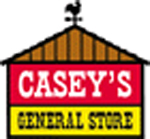Casey's Asks Shareholders to Reelect Current Board
 ANKENY, IOWA -- Casey's General Stores Inc. sent a letter to its shareholders yesterday, urging them to reelect the convenience store company's current board during to its annual meeting of shareholders to be held Sept. 23, 2010.
ANKENY, IOWA -- Casey's General Stores Inc. sent a letter to its shareholders yesterday, urging them to reelect the convenience store company's current board during to its annual meeting of shareholders to be held Sept. 23, 2010.
The company nominated all of Casey's directors for reelection at the annual meeting. The letter, from Casey's President and Chief Executive Officer Robert J. Myers, said the directors have "a superb track record of delivering value to shareholders," and shareholders' votes are "very important at this pivotal time in the company's history."
Earlier this year, Laval, Quebec-based Alimentation Couche-Tard Inc. revealed plans to nominate a full slate of independent directors to Casey's board, as part of its hostile takeover attempt of Casey's. Couche-Tard currently has a tender offer available to shareholders for $36.75 per share, which Casey's has repeatedly called undervalued.
Myers goes on to state that Casey's believes Couche-Tard's nomination plans are "simply an attempt to advance its inadequate, unsolicited offer for Casey's." The executive also said: "We believe Couche-Tard's nomination of an opposition slate is solely an attempt by Couche-Tard to advance its proposal for a business combination with Casey's."
He added: "Under the leadership of our current board, Casey's is already creating far greater value for shareholders than is reflected in Couche-Tard's offer. We urge you to discard any blue proxy cards you receive from Couche-Tard and vote the enclosed WHITE proxy card today."
Myers also touched on another company initiative to buy back approximately 25 percent of Casey's outstanding shares at a price of $38 to $40 per share, through a $500 million recapitalization plan. "The Casey's board believes Casey's stock is meaningfully undervalued at recent trading levels," the letter stated.
Explaining that the board thoroughly reviewed Couche-Tard's offers before rejecting them, Myers wrote to shareholders that the company's strong performance and strategic growth initiatives will deliver "far greater value than Couche-Tard's lowball offer. This value creation will be further enhanced by our highly accretive recapitalization plan."
He continued: "We are clearly not alone in our belief. We note that the number of shares tendered into Couche-Tard's offer has declined from 19.2 percent of Casey's outstanding shares on July 12, 2010 to just 12 percent as of August 2, 2010. The low -- and declining -- number of shares tendered clearly shows a lack of support for Couche-Tard's offer, notwithstanding its slight increase in offer price. We continue to recommend that shareholders NOT tender their shares into the Couche-Tard offer."
In response, Couche-Tard issued a statement regarding Casey's completion of a private placement of $569 million to execute the recapitalization plan, saying the plan to "transfer value from the Casey's shareholders to noteholders is outrageous." It goes on to claim that it contains a so-called "poison put" feature in favor of the noteholders that would entrench the Casey's board and management. Under the 'poison put' feature, Couche-Tard claims Casey's is required to pay noteholders approximately $95 million in penalties, along with other monetary sums, if any party acquires 35 percent or more of the outstanding shares of Casey's.
" The financing makes it almost $2 per share more expensive to acquire Casey's -- that is $2 that could have gone to the shareholders but instead is designated for noteholders in the event of any such acquisition," Couche-Tard said in a statement. "The Casey's board and management are willing to give almost 5 percent of the company's current equity value … to the noteholders in a desperate attempt to keep their jobs at the expense of the Casey's shareholders."
According to Couche-Tard, the terms also require Casey's to pay noteholders approximately $95 million in penalties if the Casey's shareholders decide to replace a majority of the Casey's board. "The Casey's board and management are trying to take the decision regarding the future of the company away from the Casey's shareholders by putting this expensive 'poison put' in place," the company stated.
Couche-Tard goes on to state that Casey's has had more than 10 months to consider alternatives to maximize value for all Casey's shareholders, and it believes the recapitalization plan is a signal that there are no other buyers for Casey's at a price exceeding Couche-Tard's $36.75 per share offer. "The actions taken by Casey's signal that it is unable to effectively deploy capital to create sustainable and profitable growth and value," Couche-Tard stated.
